DTAS Annual Conference 2024: Local Democracy Panel Debate

The Development Trusts Association Scotland’s conference gathered hundreds of representatives from community anchor organizations, local and national government, and other community sector stakeholders to address key issues impacting the development trust movement. On the first day, a widely attended debate on Local Democracy in Scotland featured Tom Sneddon (Carluke Development Trust), Lesley Riddoch (Journalist), Alastair McIntosh (Author), and Ivan McKee (MSP), who all demonstrated a strong commitment to enhancing local democracy through thoughtful devolution, strategic resource allocation, and active community involvement.
Below is a summary of each panellists main points and an overview of the core themes discussed:
Tom Sneddon:
- Emphasized the importance of local democracy that reflects community diversity through deliberative and participative methods.
- Stressed the need for innovative models of local investment and the importance of the Scottish Government seriously resourcing and investing in local powers and Community Anchor Organizations.
- Suggested combining community councils and Development Trusts into a new body called “Development Councils,” which would require statutory powers and per capita funding.
- Highlighted that the National Planning Framework offers opportunities but lacks resources, placing pressure on community organizations and local councils.
- Called for local communities to develop their own financial architecture and solutions.
Lesley Riddoch:
- Questioned what an empowered community looks like and the effectiveness of current structures like community councils.
- Criticized Scotland’s large units of local democracy and called for a more decentralized and practical structure with adequate resources and a clear mandate.
- Advocated for citizens’ assemblies to gather local evidence and guide decision-making processes.
- Brought up the point that we must focus on communities that are being left behind, those without resources.
- Argued for fairer taxation and funding models, drawing on examples from Sweden and Norway, where local engagement and multiple roles within communities lead to better outcomes.
- Highlighted the importance of building trust within communities and enabling structures that support it.
- Highlighted the build local campaign launch.
Ivan McKee:
- Discussed the necessity of balancing regional efficiency with local empowerment, focusing on the role of government support and how far powers should be devolved.
- Recognized the need for a toolkit approach to account for varying community capacities, emphasizing that some communities can move faster than others.
- Acknowledged the Scottish Government’s commitment to moving quickly on local government reform but cautioned that structural changes take longer and cost more than expected.
- Highlighted the need to empower existing community councils, which are often hyper-local but under-resourced.
- Addressed the challenges of implementing decisions made through citizens’ assemblies and the importance of carefully navigating relationships with local authorities.
Alastair McIntosh:
- Stressed that local government reform must be meaningful at the individual level, particularly in small communities.
- Highlighted the Isle of Eigg as an example of successful local governance and individual responsibility.
- Emphasized the importance of community organizers in driving local government reform and the need for communities to support their representatives.
- Discussed the importance of building trust within communities and recognizing the challenges of conflict and burnout among community organizers.
- Advocated for political will, technical and financial support, and community desire to drive successful local governance reforms.
Core themes:
- Devolution of Powers: There was a consensus on the need to devolve powers further down to local levels, ensuring that these powers reflect the diversity and specific needs of communities. This includes considering vertical devolvement (from central to local governments) and horizontal alignment among local entities like the NHS and local authorities.
- Resource Allocation and Investment: Emphasis on the need for serious resourcing and investment in local powers and Community Anchor Organisations. For example, by implementing fairer taxation systems.
- Local Government Reform: There was a call for meaningful local government reform, focusing on individual and community levels. This reform should empower smaller, remote communities and consider models beyond traditional community councils.
- Citizens’ Assemblies: Several speakers and audience members supported the idea of using citizens’ assemblies to gather community input and make decisions. These assemblies could ensure that local voices shape governance structures and policies.
- Building Trust: Trust was highlighted as a critical component in local governance. This includes building trust between communities and elected officials, as well as within communities themselves.
- Youth Involvement: There was a recognition of the need to involve young people in local governance, as seen in examples from Norway, where young councillors are common.
- Addressing Bureaucracy and Accountability: Focus on the need to address the bureaucratic barriers within local authorities and public agencies that hinder local accountability and effective governance.
Following the panel debate participants had the chance to discuss these themes more in depth in a participatory workshop. The round-table workshop re-emphasised the importance of themes such as community engagement, models of community ownership, cooperation with existing public bodies, with specific examples given by development trust officers, volunteers and board members.
Overall, both sessions highlighted the urgent need for systemic reform in local governance, and the ability of Development Trusts to take on responsibilities if properly resourced. With significant political will Democracy Matters 2 can contribute to a pathway toward a more empowered, community-driven model of democracy in Scotland.
